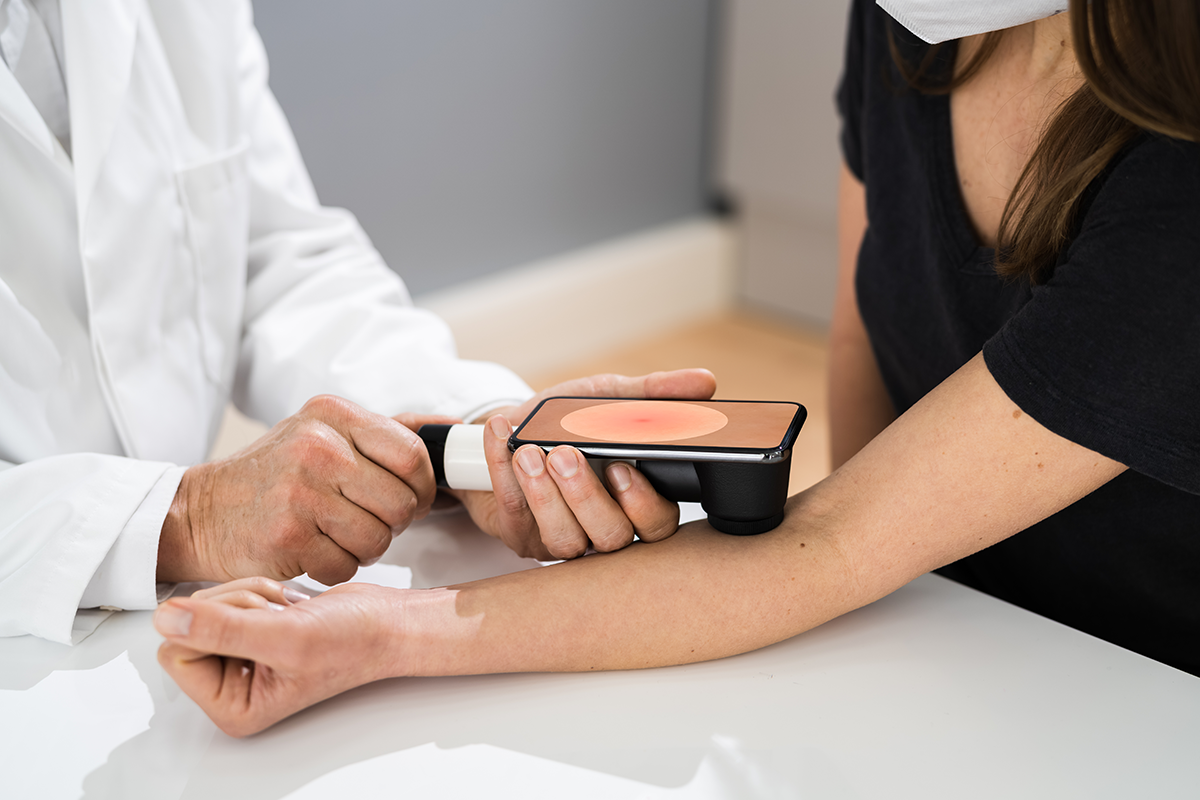
Institution Spotlight: Rutgers Cancer Institute of New Jersey
November 16, 2021
30 Member Networks and Programs Receive Commendations in 2021 for Outstanding Research Performance
November 16, 2021Trial Spotlight: Ravi Amaravadi on the EA6191/BAMM2 Trial for Melanoma

A double-blind placebo controlled randomized phase II trial of dabrafenib and trametinib with or without hydroxychloroquine in patients with advanced BRAF mutant melanoma with elevated LDH levels following immunotherapy
 By Ravi K. Amaravadi, MD
By Ravi K. Amaravadi, MD
Dr. Amaravadi (University of Pennsylvania) is the study chair for this trial. The study co-chair is Janice M. Mehnert, MD (Laura and Isaac Perlmutter Cancer Center at NYU Langone Health).
Study EA6191 (BAMM2) addresses an important therapeutic need to improve outcomes for patients with BRAF V600 mutant melanoma with elevated LDH levels who have failed immune checkpoint inhibitor therapy. While pivotal BRAF and MEK inhibitor combination studies have demonstrated high response rates and survival benefit in previously untreated patients, the recent practice-changing results of the DREAMseq (EA6134) phase 3 trial show a 20% increase in two-year survival with a treatment sequence that begins with combination nivolumab and ipilimumab immunotherapy followed by combination dabrafenib and trametinib targeted therapy if disease progression occurs versus beginning with targeted therapy. Thus, targeted therapy in melanoma is most likely going to be used in the second-line or third-line setting following immunotherapy.
A high proportion of patients who progress on immunotherapy have elevated LDH. Response rates are far lower for BRAF and MEK inhibitor combinations in patients with elevated compared to normal LDH. Therefore, there is an unmet need to identify therapeutic options for patients with elevated LDH for whom immunotherapy is no longer effective.
Autophagy is a major resistance mechanism to melanoma therapy. Numerous preclinical papers have demonstrated that autophagy inhibition can augment the efficacy of BRAF or BRAF and MEK inhibition in BRAF mutant melanoma and other BRAF V600 mutant cancers. We have recently completed a single-arm study, the BAMM trial: BRAF, Autophagy and MEK Inhibition in Melanoma: A phase I/II Open-Label Trial of Dabrafenib, Trametinib and Hydroxychloroquine in Patients with Advanced BRAF Mutant Melanoma. The BAMM trial was a four institution, investigator-initiated study for patients with stage IV BRAF V600 mutant melanoma. The trial recruited 34 patients.
The short phase I portion of the study did not identify a dose-limiting toxicity and established hydroxychloroquine (HCQ) 600 mg by mouth twice a day as the recommended phase II dose to combine with dabrafenib and trametinib. This regimen was well tolerated, with no clinically significant ocular, cardiac, or other toxicity outside of the typical toxicities associated with BRAF and MEK inhibition and a slight increase in manageable grade 1-2 diarrhea and rash. In this single-arm study, 47% of patients had elevated LDH levels and 50% were previously treated with immune checkpoint inhibition. The BAMM regimen produced an 85% response rate in the entire study population and an 88% response rate in patients with elevated LDH. This compares favorably with response rates of 50%-60% found with dabrafenib and trametinib in patients with elevated LDH.
Based on this signal of safety and activity from the single-arm phase II study, ECOG-ACRIN launched EA6191/BAMM2, a double-blind, placebo-controlled, randomized phase II trial of dabrafenib and trametinib with or without HCQ. Patients with stage III unresectable or stage IV BRAF V600E/K mutant melanoma with elevated LDH levels following immunotherapy (either in the adjuvant or metastatic setting or both) are eligible. Brain metastases are allowed on study following treatment with radiation therapy.
Eligible patients are randomized 1:1 to either HCQ or matching placebo with all patients receiving concurrent dabrafenib and trametinib. Serial tumor biopsies are optional, and serial blood plasma and archival tumor are being banked for correlative studies that will focus on the measurement of autophagy and cell death markers, immunoprofiling and predictive and pharmacodynamic biomarker discovery.
This study will have an impact not only by identifying a potential regimen that is effective for this group of patients with a poor prognosis, but also by guiding the development of novel autophagy inhibitors that are emerging for cancer as well.
Learn more about the EA6191/BAMM2 trial at ecog-acrin.org.
![ECOG-ACRIN logo[19516]275×75](https://blog-ecog-acrin.org/wp-content/uploads/2021/03/ECOG-ACRIN-logo19516275x75.png)
